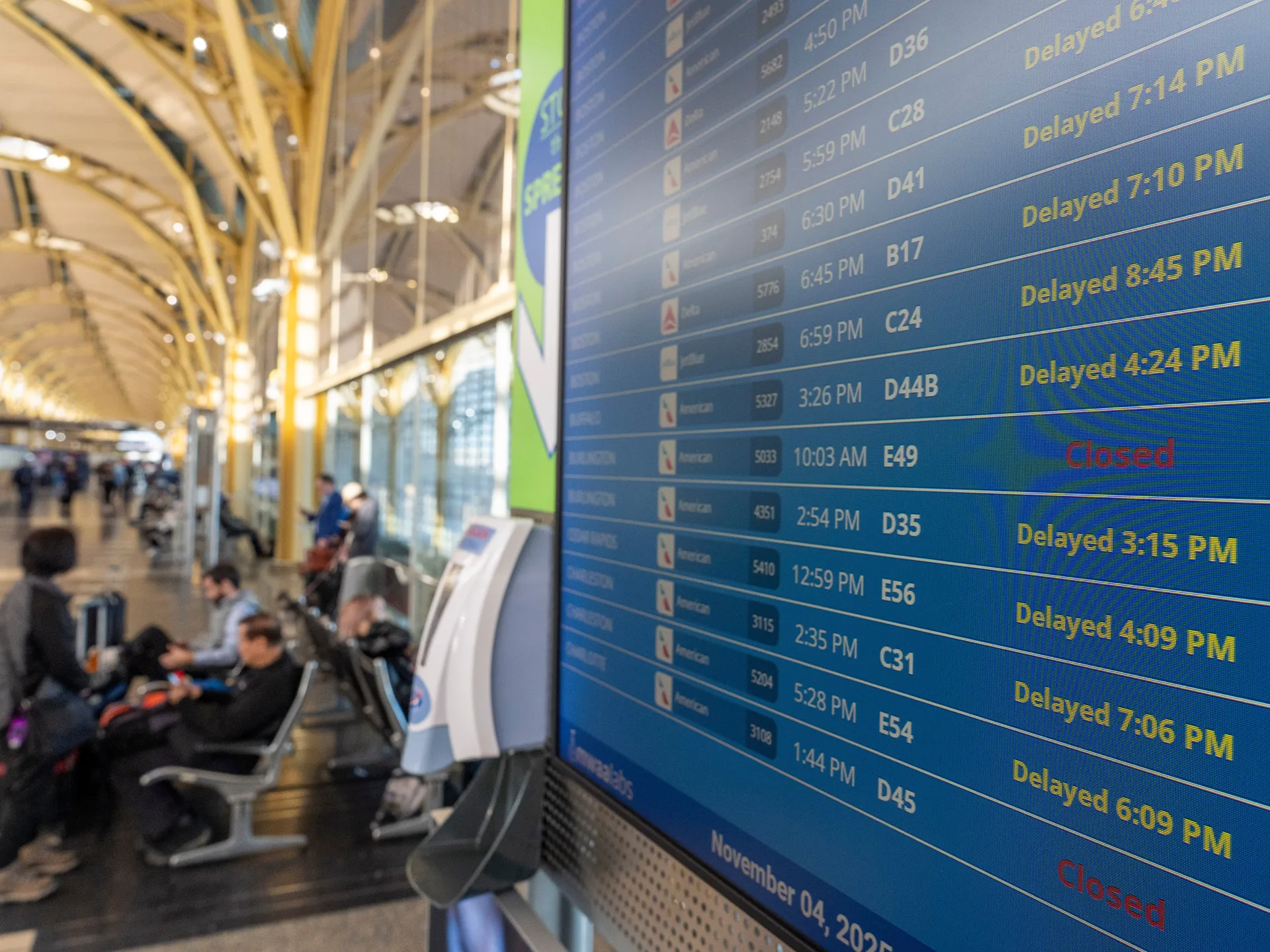FAA to reduce flights by 10 percent as US government shutdown drags on | Aviation News
The agency made the announcement as it confronts staffing shortages caused by air traffic controllers who are working unpaid.
Published On 5 Nov 2025
The United States Federal Aviation Administration (FAA) will reduce air traffic by 10 percent across 40 “high-volume” markets beginning Friday morning to maintain safety during the ongoing government shutdown, it has said.
The agency made the announcement on Wednesday as it confronts staffing shortages caused by air traffic controllers, who are working unpaid, with some calling out of work during the shutdown, resulting in delays across the country.
Recommended Stories
list of 4 itemsend of list
FAA Administrator Bryan Bedford said the agency is not going to wait for a problem to act, saying the shutdown is causing staffing pressures and “we can’t ignore it”.
Bedford and Transportation Secretary Sean Duffy said they will meet later Wednesday with airline leaders to figure out how to safely implement the reduction.
Widespread delays
The shutdown, now in its 36th day, has forced 13,000 air traffic controllers and 50,000 Transportation Security Administration officers to work without pay. This has worsened staff shortages, caused widespread flight delays and extended lines at airport security screening.
The move is aimed at taking pressure off air traffic controllers. The FAA also warned that it could add more flight restrictions after Friday if further air traffic issues emerge.
Duffy had warned on Tuesday that if the federal government shutdown continued another week, it could lead to “mass chaos” and force him to close some of the national airspace to air traffic, a drastic move that could upend American aviation.
Airlines have repeatedly urged an end to the shutdown, citing aviation safety risks.
Shares of major airlines, including United Airlines and American Airlines, were down about 1 percent in extended trading.
An airline industry group estimated that more than 3.2 million passengers have been affected by flight delays or cancellations due to rising air traffic controller absences since the shutdown began on October 1. Airlines have been raising concerns with lawmakers about the impact on operations.
Airlines said the shutdown has not significantly affected their business, but have warned bookings could drop if it drags on. More than 2,100 flights were delayed on Wednesday.
On Tuesday, FAA’s Bedford said that 20 percent to 40 percent of controllers at the agency’s 30 largest airports were failing to show up for work.
The federal government has mostly closed as Republicans and Democrats are locked in a standoff in Congress over a funding bill. Democrats have insisted they would not approve a plan that does not extend health insurance subsidies, while Republicans have rejected that.
